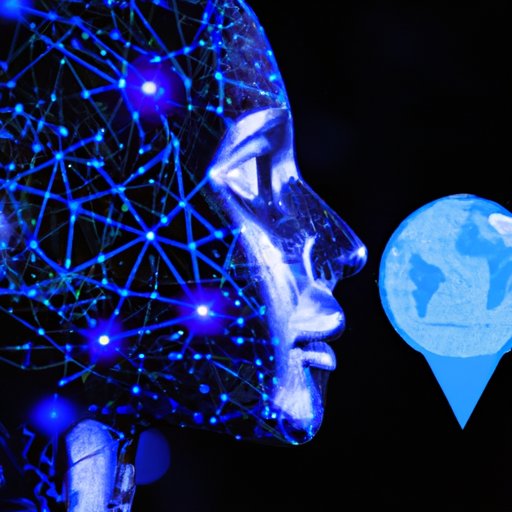Introduction
Artificial Intelligence (AI) refers to the simulation of human intelligence processes by machines, especially computer systems. These processes include learning, reasoning, problem-solving, perception, and decision-making. AI has been around since the 1950s, but in recent years, it has experienced a resurgence due to advances in technology and the availability of data and computing power. As the world continues to become increasingly digitalized, AI is becoming more integral in our daily lives. In this article, we will explore why AI is the future and how it could potentially benefit businesses, transform everyday life, and impact society.

Exploring the Potential Benefits of AI for Businesses
The use of AI can bring numerous benefits to businesses, from automation and efficiency gains to cost savings. By automating mundane tasks, companies can free up their employees’ time to focus on more complex and value-added activities, resulting in improved productivity and efficiency. AI can also reduce costs by eliminating manual labor, reducing the need for human resources, and streamlining processes. Furthermore, AI-driven decisions can be more accurate and reliable than those made by humans, allowing businesses to make better decisions faster.
Examining How AI is Transforming Everyday Life
AI is rapidly transforming the way we live. Smart homes are becoming increasingly popular, utilizing AI-powered devices such as voice assistants, security cameras, and light bulbs. Autonomous vehicles are being developed to navigate roads safely, while virtual assistants like Siri and Alexa are making our lives easier by providing us with quick access to information and services. AI is also being used to improve customer service, with chatbots providing customers with instant support and answers to their questions.

Investigating the Impact of AI on Society
The introduction of AI into our lives has raised a number of ethical and legal concerns. For instance, the automation of certain jobs could lead to job loss and a widening of the gap between the rich and the poor. There are also concerns about the privacy of personal data, as AI systems can collect and store vast amounts of information, which could be misused or abused. Additionally, there are worries that AI could be used to manipulate people or create biased decisions.
Looking at the Future of AI in Education
AI has the potential to revolutionize education, offering personalized learning experiences tailored to each student’s individual needs. AI-powered tutoring systems can provide students with real-time feedback and guidance, while automated grading systems can help teachers save time and reduce errors. AI can also improve accessibility, enabling distance learning and providing educational opportunities to those who may not be able to attend traditional schools.

Analyzing the Role of AI in Healthcare
AI has the potential to revolutionize healthcare, from diagnostics and treatment to drug development and patient care. AI-driven technologies such as machine learning and natural language processing can be used to analyze medical data, diagnose diseases, and recommend treatments. AI can also be used to develop new drugs, detect anomalies in medical images, and help physicians provide better patient care.
Conclusion
This article has explored why AI is the future and how it could potentially benefit businesses, transform everyday life, and impact society. AI has the potential to automate mundane tasks, reduce costs, improve decision-making, and revolutionize healthcare, education, and other sectors. However, the introduction of AI also brings a number of ethical and legal concerns, such as job loss, privacy issues, and bias. As AI technology continues to advance, it is important to consider these implications and ensure that the technology is used responsibly.
(Note: Is this article not meeting your expectations? Do you have knowledge or insights to share? Unlock new opportunities and expand your reach by joining our authors team. Click Registration to join us and share your expertise with our readers.)
